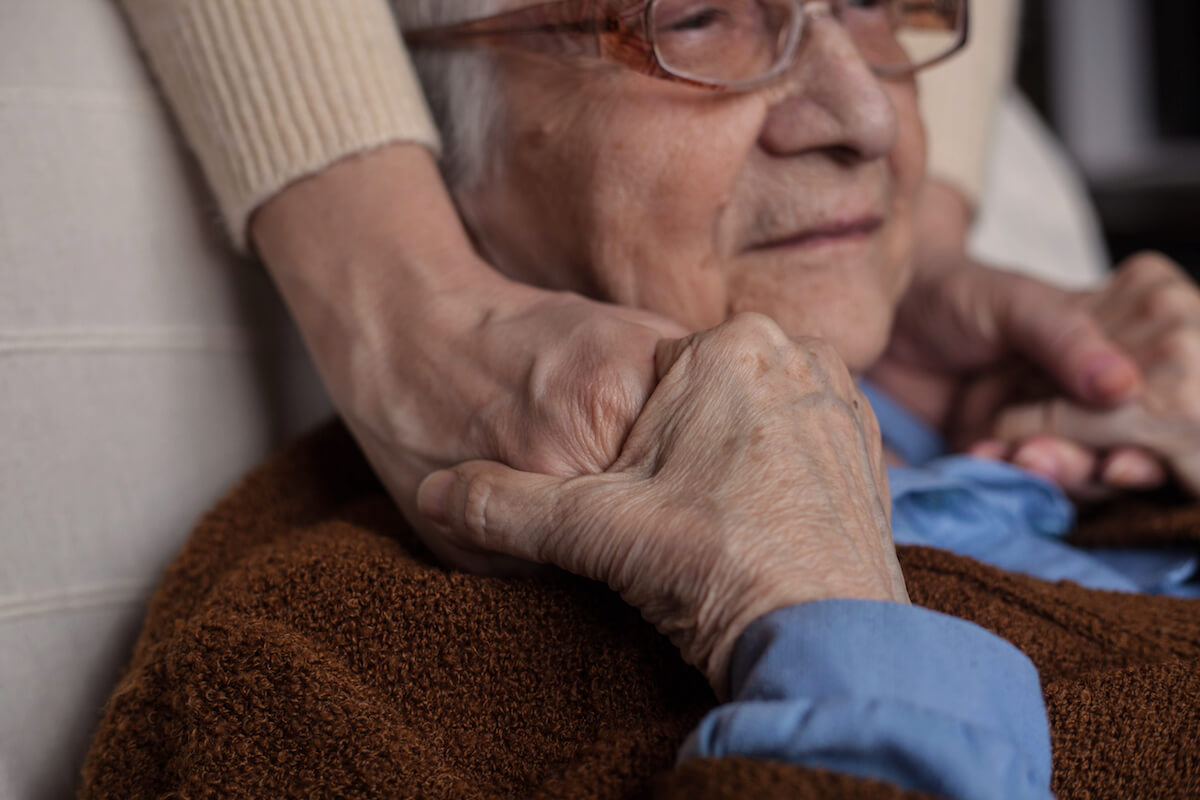June 15, 2022

If you are caring for a parent or family member living with Alzheimer’s disease or another type of dementia, you may experience unexpected challenges. For example, as your loved one’s condition progresses, you may notice that their symptom seems to affect them more in the evening hours and throughout the night. Why is this the case?
This late-day confusion is referred to as sundowning and affects 66% of individuals living with dementia, making it more common than many people realize.
Franciscan Ministries offers compassionate memory care and other senior care options, and we understand the challenges that can come with caring for someone living with dementia and experiencing sundowning symptoms. Below, we share a guide that explains sundowning and ways you can help alleviate symptoms to enhance the dementia care experience.
Mayo Clinic describes sundowning as “a group of symptoms that occur at a specific time of day that may affect people with dementia, such as Alzheimer’s disease.”
Sundowning in itself is not a specific condition. Instead, it refers to a “state of confusion” that starts in the late afternoon and spans into the night. Even though the exact cause of sundowning remains unclear, researchers believe it is linked to a disruption in an individual’s inner circadian rhythm.
The circadian rhythm is essentially the body’s internal clock. It signals your body when it is time to wake up each morning and be alert and when to wind down and go to sleep each evening.
Changes can occur to our inner circadian rhythm and sleep-wake cycle as we age. But, this internal clock can be damaged in the brains of people living with dementia to the point where it is believed to result in symptoms of sundowning.
Just like dementia, sundowning affects every individual differently. While there are common symptoms correlated to sundowning, this does not mean that your loved one will experience all, of any, of them. Furthermore, these symptoms could also be subtle at first and gradually worsen over time.
Common symptoms of sundowning include:
Individuals living with dementia often find comfort in structure and routines because they help minimize surprises and reduce confusion. If your parent or family member is experiencing symptoms of sundowning, creating a routine, especially around bedtime, can help minimize confusion and agitation.
Make sure to start this routine at the same time every day by reducing stimulation during the evening hours (i.e., TV, doing chores, loud music, etc.). These distractions may add to the person’s confusion. For example, maybe you turn off the television at a specific time to encourage your loved one to get ready for sleep.
A common trigger of sundowning symptoms is increased shadows, so after the sun goes down in the evening, make sure to keep the home well-lit. Not only can this help reduce the number of shadows to potentially minimize sundowning symptoms, but it will also enable your loved one to better navigate the space and help them move around more safely.
Promote a calming environment, especially in the evening hours. Minimizing loud noises can help reduce stress and anxiety as well as create a relaxing environment for your family member to unwind for the night.
Everyone has a story to tell. In our memory care communities, we provide specialized support for individuals living with Alzheimer’s disease or other types of dementia, enabling them to continue their stories. Here, your loved one receives 24-hour care and attention in a secure environment that preserves dignity, enhances quality of life and offers peace of mind for you and your family.
At Franciscan Ministries, making new memories and experiences is part of everyday life. If you would like to learn more about our personalized memory care services and how they can help your family, we encourage you to visit our website or contact a member of our team.